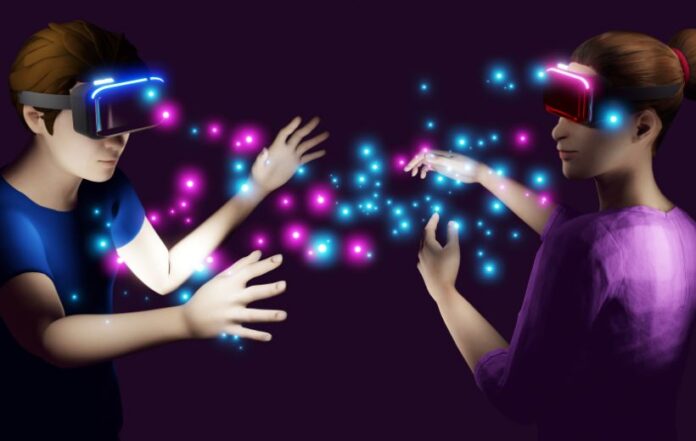Introduction: The Evolution of Digital Experimentation
The rise of EGamer marks a significant moment in the way digital platforms are being used as spaces of innovation. Unlike traditional gaming, which was often viewed solely as entertainment, the EGamer phenomenon demonstrates how virtual environments have evolved into living laboratories where creativity, experimentation, and technological progress converge. These virtual worlds are not merely simulations of reality but are becoming experimental grounds that influence industries far beyond the boundaries of gaming.
Virtual Worlds as Test Beds for Innovation
At the core of the EGamer experience is the opportunity for developers, players, and even researchers to treat digital spaces as test beds. Every new feature, from artificial intelligence-driven characters to immersive physics engines, is tested in real time with engaged participants. The constant feedback loop between creators and users ensures that the pace of innovation is faster and more adaptive than in traditional industries. This dynamic not only enhances the quality of games but also provides insights into user behavior, technological limitations, and the creative potential of interactive design.
Blurring the Line Between Reality and Simulation
Virtual worlds powered by the EGamer community blur the line between imagination and practical application. For example, architectural firms have begun using game engines to simulate building designs, while educators employ gamified environments to enhance learning outcomes. The experimental nature of gaming spaces makes them perfect for trialing new concepts, as failure comes at little real-world cost. In this way, EGamer is shaping a new paradigm where virtual experimentation informs real-world progress.
Collaboration as a Catalyst for Creativity
One of the defining features of EGamer culture is its emphasis on collaboration. Multiplayer worlds demand teamwork, coordination, and shared problem-solving, which are skills directly applicable to broader societal challenges. Developers often observe how players navigate complex in-game situations, and these behaviors can inspire new collaborative tools in business, healthcare, and even governance. The living laboratory concept thrives precisely because of this interactivity—where every player contributes to the ongoing evolution of virtual worlds.
Technological Advancements Emerging from Play
The impact of EGamer extends beyond cultural shifts; it is accelerating technological advancements. Game engines have pioneered techniques that are now standard in industries such as film, engineering, and healthcare. From real-time rendering to virtual reality applications, innovations born in gaming laboratories are reshaping how humans interact with technology. For instance, the rise of motion capture and AI-driven narratives owes much to experimental approaches tested first within virtual games. The adaptability of these technologies showcases how EGamer is not only entertainment but also an incubator of groundbreaking tools.
The Role of Data in Shaping Virtual Futures
Another critical aspect of EGamer as a living laboratory lies in the massive amount of data generated within virtual environments. Every movement, decision, and interaction creates a record that can be analyzed to uncover patterns of human behavior. This wealth of data allows developers and researchers to fine-tune systems with remarkable precision. Beyond gaming, this data-centric experimentation informs everything from urban planning models to mental health interventions, illustrating the far-reaching potential of insights derived from digital play.
Cultural Experimentation in Digital Spaces
Beyond technology, EGamer also represents a space of cultural innovation. Virtual worlds allow individuals to explore identity, culture, and community in ways that may not be possible in physical reality. Players experiment with new forms of self-expression through avatars, storytelling, and shared cultural rituals within games. These experiments reflect back into the real world, shaping fashion, language, music, and social norms. The laboratory of play becomes a mirror of evolving global culture, driven by creativity and inclusivity.
Challenges of Innovation in Virtual Laboratories
While the promise of EGamer as a living laboratory is immense, it is not without challenges. Ethical questions arise regarding data privacy, the psychological effects of extended immersion, and the boundaries between entertainment and exploitation. Moreover, the fast pace of technological development sometimes outpaces the creation of regulations and protections. Addressing these challenges will be crucial to ensuring that the innovations emerging from virtual worlds are equitable, safe, and sustainable.
Future Horizons: Beyond Gaming
The next frontier of EGamer’s role as a laboratory lies in its expansion into sectors that were once considered unrelated to gaming. Already, virtual environments are being used for medical training, climate simulations, and global communication strategies. As technologies such as artificial intelligence, augmented reality, and blockchain merge with gaming platforms, the laboratory potential of these digital ecosystems will only grow. EGamer is setting the stage for a future where experimentation in virtual spaces becomes a central driver of real-world progress.
Conclusion: A New Era of Innovation Through Play
EGamer stands as more than just a pastime; it is a living laboratory that redefines how societies innovate. By providing experimental grounds for testing technologies, cultural practices, and collaborative dynamics, virtual worlds are becoming essential components of global progress. The convergence of creativity, data, and human connection ensures that the role of EGamer will continue to expand, shaping the way humanity learns, works, and plays in the digital age.



